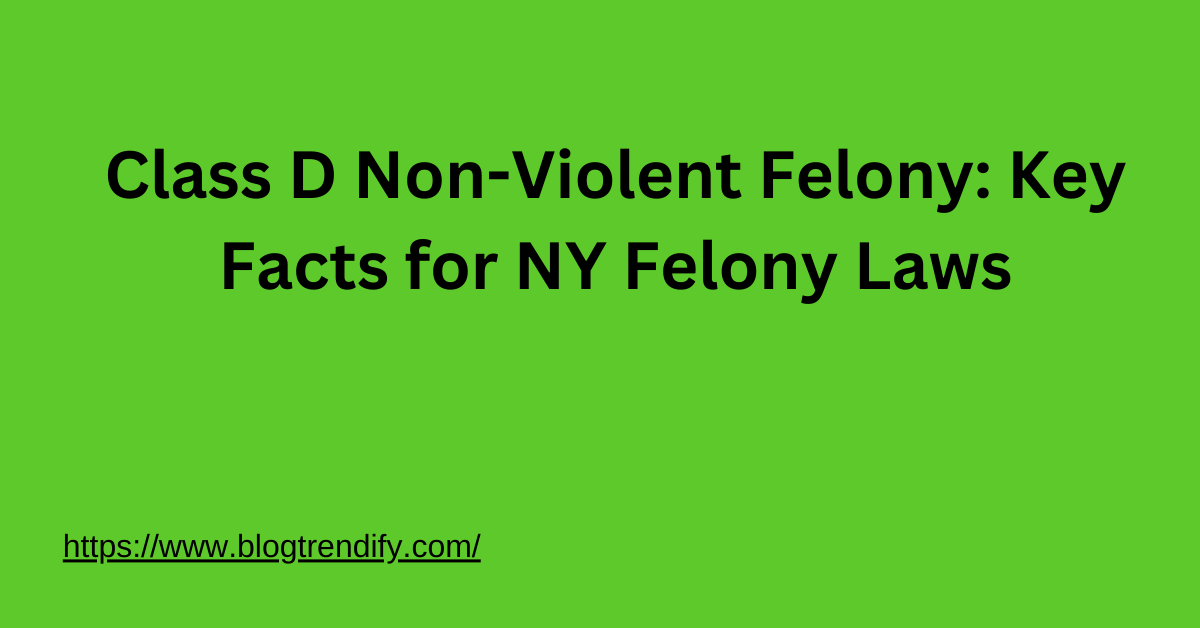Introduction
Table of Contents
ToggleClass E felonies represent the least severe felony category in New York law, but they still carry serious consequences. These crimes are not considered violent but can have a significant impact on the accused person’s life. Individuals convicted of a Class E felony can face imprisonment, hefty fines, and other legal repercussions. This article will provide a comprehensive understanding of Class E felonies in New York, covering common offenses, penalties, and the potential legal defenses available.
What is a Class E Felony in New York?
Class E felonies in New York are considered the least severe type of felony, though they are still more serious than misdemeanors. Class E felonies typically involve property crimes, drug offenses, and certain types of fraud, but they do not usually involve physical violence. Despite being the least severe felony category, a conviction for a Class E felony can result in significant legal consequences, including prison time, probation, and fines.
Common Examples of Class E Felonies in New York
Below is a table listing some common Class E felony offenses and their descriptions:
| Offense | Description |
|---|---|
| Abandonment of a Child | Leaving a child without proper care, support, or supervision. |
| Aggravated Harassment in the First Degree | Intentionally harassing someone through physical threats, repeated contact, or threats of violence. |
| Arson in the Fourth Degree | Intentionally causing damage to property by fire or explosion, typically involving less severe damage. |
| Bail Jumping in the Second Degree | Failing to appear in court after being released on bail, leading to an additional charge. |
| Bribe Giving for Public Office | Offering a bribe to a public official to influence their decisions or actions. |
| Computer Tampering in the Third Degree | Unlawfully accessing or altering computer data without authorization. |
| Criminal Possession of Marijuana in the Third Degree | Possessing marijuana in a quantity that exceeds the legal limit for personal use but is less than the intent to sell. |
| Forgery of a Vehicle Identification Number (VIN) | Falsifying or altering a vehicle’s identification number to hide the origin of a vehicle, usually for resale purposes. |
| Grand Larceny in the Fourth Degree | Stealing property or money valued at over $1,000 but less than $3,000. |
| Insurance Fraud in the Fourth Degree | Filing false claims or intentionally misleading an insurance company for financial gain. |
| Perjury in the Second Degree | Lying under oath, typically in a formal legal proceeding such as a trial or deposition. |
| Stalking in the Second Degree | Engaging in a course of conduct that causes another person to fear for their safety or well-being. |
| Tampering with Physical Evidence | Altering or destroying evidence that is relevant to an ongoing investigation or criminal case. |
| Vehicular Assault in the Second Degree | Causing harm or injury to someone while operating a vehicle recklessly or while under the influence of drugs or alcohol. |

Penalties for Class E Felony Convictions
1. Prison Sentences
The maximum penalty for a Class E felony in New York is up to 4 years in prison. However, sentences can vary depending on the specific circumstances of the offense and the defendant’s criminal history. In many cases, first-time offenders may receive more lenient sentences, such as probation.
2. Fines
Those convicted of a Class E felony may face significant fines, which could range up to $5,000, in addition to any restitution required to compensate victims. The court may also order the defendant to pay for any costs related to the investigation or trial.
3. Probation
Instead of a prison sentence, a defendant may be placed on probation. During probation, the individual must comply with specific conditions, such as meeting regularly with a probation officer, attending counseling or rehabilitation programs, and refraining from committing additional crimes.
Defenses Against Class E Felony Charges
1. Lack of Intent
A common defense in Class E felony cases is that the defendant lacked the intent to commit the crime. For example, in cases involving criminal possession of stolen property, the defendant might argue that they were unaware the property was stolen.
2. False Allegations
In some cases, individuals are falsely accused of committing a Class E felony. A strong defense could involve proving that the defendant was wrongly identified or that the allegations were fabricated.
3. Insufficient Evidence
If the prosecution cannot provide enough evidence to prove guilt beyond a reasonable doubt, the defendant may have their charges reduced or dismissed. An experienced defense attorney will often challenge the sufficiency of evidence presented by the prosecution.
4. Illegal Search and Seizure
A defense based on unlawful search and seizure can be used in cases where evidence was obtained in violation of the defendant’s constitutional rights. If law enforcement conducted an illegal search without a warrant or probable cause, any evidence found could be inadmissible in court.
The Importance of Hiring a Criminal Defense Attorney
When facing charges for a Class E felony, it is crucial to seek the assistance of a skilled criminal defense attorney. An attorney will help you navigate the complexities of the legal process, explain your rights, and build a strong defense strategy. With legal representation, you can work toward the best possible outcome for your case.
Conclusion
Class E felonies, while considered less severe than other felony classes in New York, still carry serious consequences that can impact your life for years to come. Individuals facing Class E felony charges must understand the potential penalties, explore all available defenses, and work with a legal professional to ensure their rights are protected.
FAQs
1. What is the maximum penalty for a Class E felony in New York?
The maximum penalty for a Class E felony is up to 4 years in prison, though sentences can vary based on the case details.
2. Can I avoid jail time for a Class E felony conviction?
In some cases, defendants may receive probation or a reduced sentence, especially if it is their first offense or if there are mitigating factors.
3. What crimes are classified as Class E felonies?
Class E felonies in New York include offenses such as grand larceny, criminal possession of marijuana, insurance fraud, and various types of bribery.
4. Can I have my Class E felony conviction expunged?
While New York law does not allow for the expungement of felony convictions, certain convictions may be eligible for record sealing under specific circumstances.
5. What should I do if I am charged with a Class E felony?
If you are charged with a Class E felony, it is important to contact a criminal defense attorney immediately to discuss your case and begin building a defense strategy.



